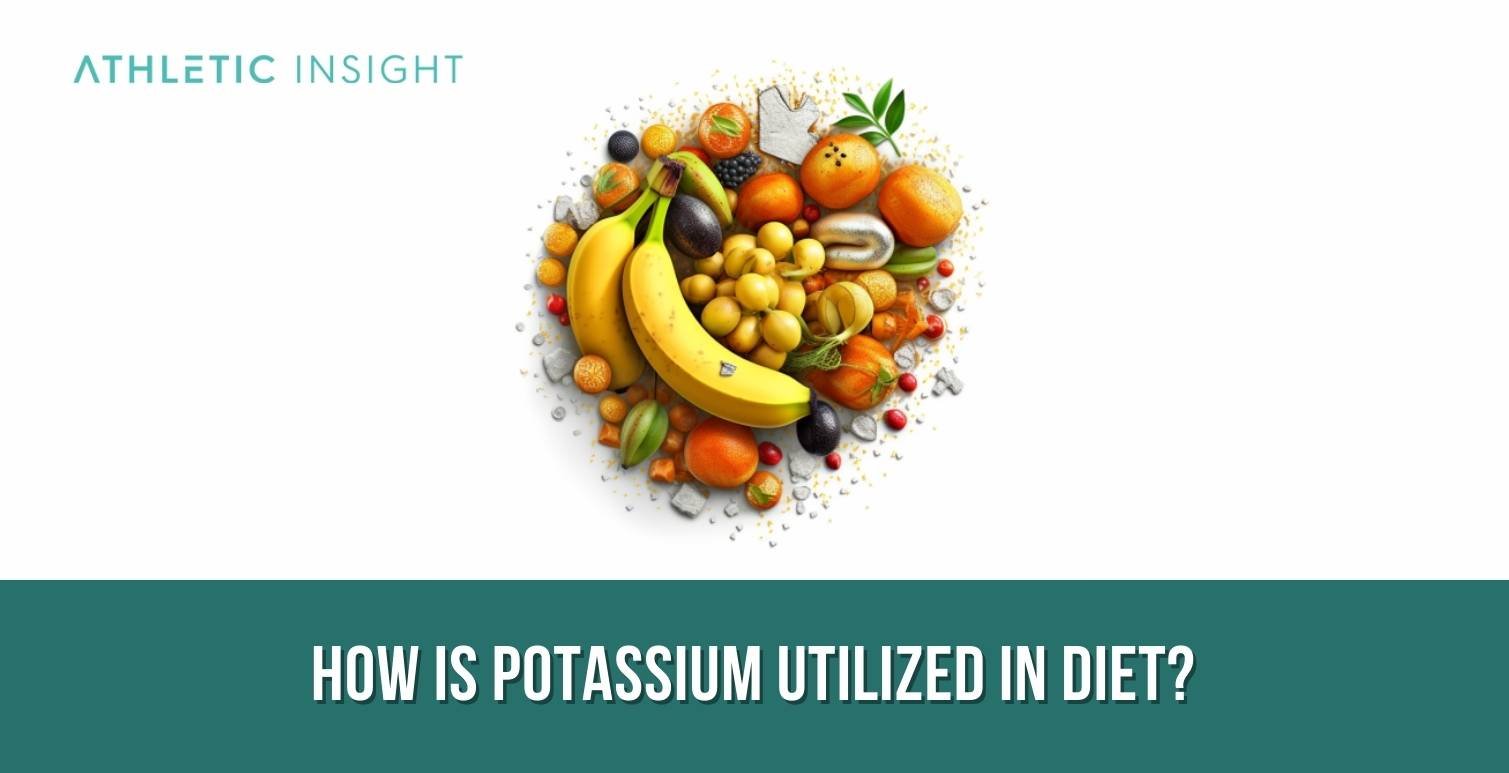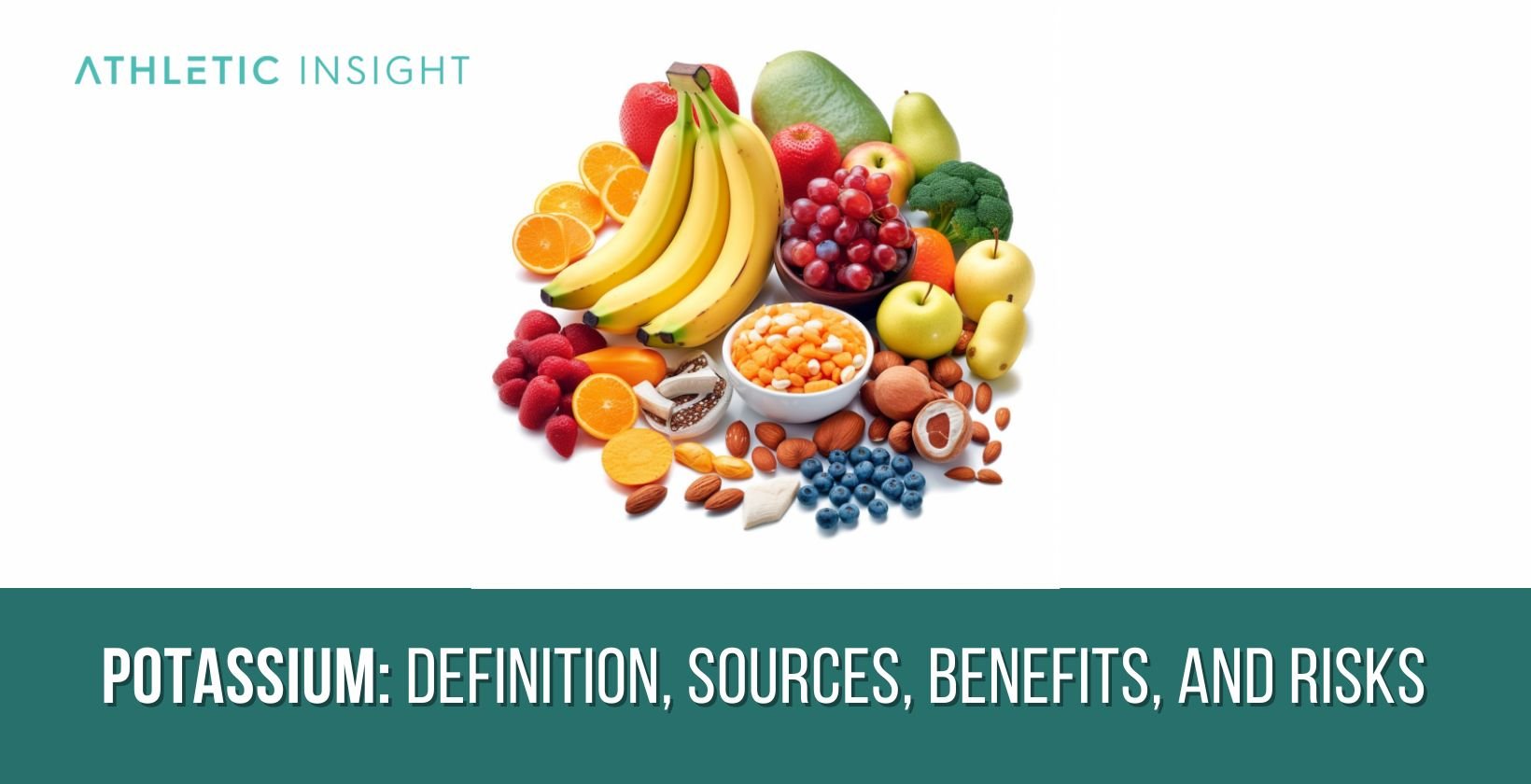Potassium, an essential dietary mineral and an electrolyte, plays several pivotal roles in the body, including maintaining fluid balance, transmitting nerve signals, and regulating heart rhythms. Potassium is also crucial in controlling blood pressure and is present in a variety of food sources such as fruits, vegetables, legumes, whole grains, dairy products, and lean meats.
The recommended daily intake for potassium varies with age, gender, and current circumstances such as health conditions or whether or not someone is pregnant. Ensuring the adequate intake of potassium brings multiple benefits such as controlling blood pressure, reducing kidney stones, and supporting bone health. Potassium significantly impacts sports performance by aiding in nerve signal transmission, muscle contractions, and regulating hydration and fluid balance, thereby enhancing stamina and endurance.
Despite these benefits, both low and high levels of potassium pose risks. Hypokalemia, or low potassium, can lead to weakness, fatigue, muscle cramps, constipation, and palpitations, with severe cases potentially causing life-threatening heart rhythm abnormalities. On the other hand, hyperkalemia, or high potassium, can disrupt heart rhythm and potentially cause cardiac arrest. Symptoms of high potassium levels can include nausea, fatigue, and weakness, and in severe cases, irregular heartbeats or palpitations. Consequently, it’s crucial to manage potassium intake and monitor its levels regularly, particularly for individuals with related medical conditions.
What is Potassium?
Potassium is a critically essential dietary mineral, traditionally classified as an electrolyte. This signifies its ability to transmit electric charges when dissolved in bodily fluids. It is denoted by the chemical symbol ‘K’ from its Neo-Latin name ‘kalium’. In nature, potassium is found combined with other elements as salts, yet in the human body, it performs an array of functions, ranging from controlling fluid balance to regulating heart rhythms.
What is the importance of Potassium in the body?
Potassium acts as a cog in the intricate machinery of the human body, instrumental in several vital operations. First and foremost, potassium is essential in maintaining fluid and electrolyte balance. Moreover, it helps transmit nerve signals, enabling communication between nerves and muscles, thereby influencing muscle contraction. Notably, this includes the rhythmical contraction of the heart, underlining its role in cardiovascular health.
How does potassium affect blood pressure?
Studies suggest that potassium plays a key role in modulating blood pressure levels. This mineral aids in balancing the detrimental effects of sodium, thus maintaining healthy blood pressure. By promoting sodium excretion through urine, potassium helps decrease the overall volume of blood, thereby reducing blood pressure.
What are some of the foods that are rich in Potassium?
Potassium is generously present in a variety of foods. Fruits like bananas, oranges, and apricots are well-regarded potassium sources. Vegetables, including spinach, potatoes, and cucumbers, are similarly potassium-rich. Additionally, it can be found in legumes like lentils and kidney beans, whole grains, dairy products, and lean meats.

What is the recommended daily intake of potassium?
The daily recommended intake of potassium one should consume depends on age. For potassium amounts, it is recommended that males and females aged; 1-3 years old should consume 3000 mg, 4-8 years old should consume 3800 mg, 9-13 years old should consume 4500 mg, 14+ years old should consume 4700 mg.
| Age | Male | Female |
| 1-3 years | 3,000 mg | 3,000 mg |
| 4-8 years | 3,800 mg | 3,800 mg |
| 9-13 years | 4,500 mg | 4,500 mg |
| 14+ years | 4,700 mg | 4,700 mg |
All potassium values above are in milligrams (mg). Although it isn’t mentioned, pregnant women require 4,700 mg daily, while lactating women need 5,100 mg.
What are the benefits of Potassium?
Potassium has a myriad of health benefits. It helps control blood pressure, reduce kidney stones, and counteract the effects of excessive dietary sodium. Moreover, it maintains acid-base balance, reduces the risk of stroke, and supports bone health.
How does Potassium affect Sports Performance?
Athletes can reap significant benefits from optimal potassium levels as it assists in nerve signal transmission and muscle contractions, both vital for athletic performance. Potassium also helps with glycogen storage, a primary energy source during high-intensity exercise, thereby contributing to improved stamina.
How Does Potassium Affect Athlete Hydration and Fluid Balance?
Hydration and fluid balance, which are critical for athletic performance, are profoundly influenced by potassium. As an electrolyte, potassium helps regulate the balance of fluids in the body, providing adequate hydration during even extreme bouts of activity. In the case of heavy sweating, replenishing potassium can prevent dehydration and the associated drop in performance.
Can a potassium-rich diet help improve endurance?
Yes, consuming a diet rich in potassium can significantly bolster endurance. It aids in the efficient storage of glycogen, a primary source of energy during prolonged exercise. Additionally, the role of potassium in muscle function, nerve signaling, and fluid balance can reduce fatigue, thereby enhancing overall endurance capacity.
How is Potassium utilized in Diet?
Potassium is absorbed through the gastrointestinal tract and utilized by the body to maintain fluid balance, nerve function, and muscle contraction. Any excess in one’s diet plan is excreted through the kidneys to ensure the body maintains the necessary balance. It is noteworthy that potassium, unlike some other minerals, is not stored in the body, underlining the need for regular dietary intake.

How does Potassium affect the body’s ability to regulate Electrolytes?
Potassium is an electrolyte itself, thus playing an instrumental role in maintaining the body’s electrolyte balance. It works alongside sodium and chloride to regulate fluid balance, nerve signal transmission, and muscle contraction. Furthermore, potassium helps to offset the potentially harmful effects of excessive sodium, contributing to balanced electrolyte levels.
What are the Risks of Potassium?
While potassium is undoubtedly beneficial, too much or too little of it can lead to health complications. Hyperkalemia, an elevated potassium level in the blood, can disrupt heart rhythm and potentially cause cardiac arrest. On the flip side, hypokalemia, or low potassium, can lead to fatigue, muscle weakness, and digestive issues.
What happens if you have low Potassium levels?
Low potassium levels, clinically known as hypokalemia, can manifest through a constellation of symptoms. It may cause weakness, fatigue, muscle cramps, constipation, and palpitations. Severe hypokalemia can even lead to life-threatening abnormalities in heart rhythm.
Can low potassium cause dizziness?
Yes, low potassium can indeed cause dizziness. As potassium plays a role in maintaining heart rhythm and aiding nerve and muscle cells’ function, a deficiency can result in impaired nerve signals. This can lead to feelings of light-headedness or dizziness.
What happens if your potassium levels are high?
High potassium levels, or hyperkalemia, is typically a symptom of reduced kidney function, but it can also occur with excessive intake. Symptoms can be vague but might include nausea, fatigue, and weakness. In severe cases, it can cause irregular heartbeats or palpitations and, in extreme circumstances, may lead to a heart attack. It is therefore paramount to manage potassium intake and regularly monitor levels if you have a related medical condition.
How to Prevent and Manage Potassium Imbalances?
To prevent both hypokalemia and hyperkalemia, it’s essential to maintain a diet that provides the right amount of potassium. This entails consuming potassium-rich foods for individuals who need to increase their levels. Similarly, for those with high potassium levels, it’s vital to limit foods rich in potassium and manage underlying health conditions that may cause hyperkalemia, such as kidney disease.

How to Manage Hypokalemia?
Hypokalemia management is typically two-fold; consuming more potassium-rich foods and managing any underlying conditions contributing to low potassium levels, such as excessive sweating, diarrhea, or use of certain medications. If severe, medical intervention may be required to rectify the imbalance.
How to Manage Hyperkalemia?
Hyperkalemia is typically managed by addressing the underlying cause, which may include adjusting medications that increase potassium levels, treating any kidney disease, or implementing dietary modifications.
Should You Take Potassium with Magnesium?
Potassium and magnesium are two minerals that work synergistically in the body, particularly in maintaining healthy heart and muscle function. However, the decision to supplement one’s diet with these minerals should be made in consultation with a healthcare professional. While they can often be taken together safely, individual health status and medication use can impact the body’s ability to absorb these minerals or regulate their levels.



